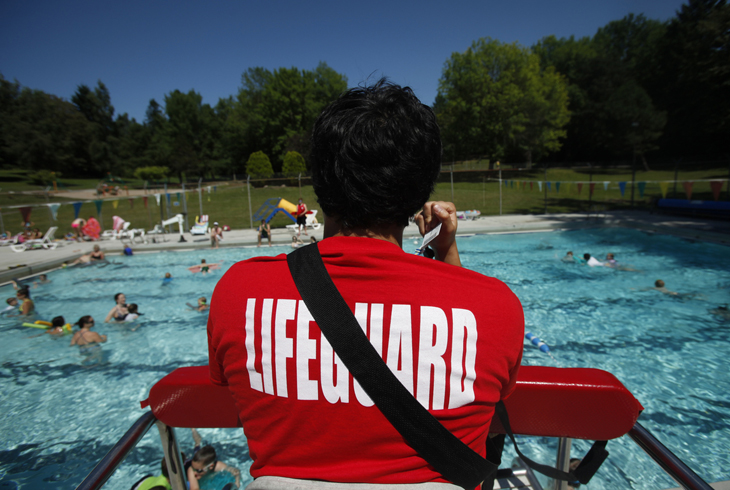Water safety is a basic part of public health and recreation, with different professional roles devoted to ensuring the prosperity of people in aquatic environments. Whether at a beach, pool, or water park, water safety professionals play an imperative role in preventing accidents and saving lives.
This article will explore some of the top jobs in the water safety profession and what every role involves.
Lifeguard: The Frontline of Water Safety
Lifeguards are maybe the most conspicuous water safety professionals. They are positioned at pools, beaches, and water parks, entrusted with monitoring activities and responding to emergencies. Lifeguards should be trained to rapidly evaluate situations, give first aid, and perform rescues. A vital aspect of their responsibilities is to implement safety guidelines and forestall accidents before they occur.
To become a lifeguard, competitors need to finish lifeguard training, which incorporates getting the hang of lifesaving techniques, CPR, and how to utilize rescue equipment. Many people hoping to begin a career in water safety frequently look for “lifeguard training near me” to track down licensed programs in their space. These courses likewise assist competitors with fostering the physical endurance expected for the role.
Lifeguarding is an excellent section level situation for people inspired by water safety careers. While it very well may be a seasonal job in some areas, it gives priceless experience and can prompt higher-level opportunities in the field.
Water Safety Instructor: Teaching the Next Generation
Water safety instructors (WSIs) play an essential role in preventing drowning by teaching people how to swim and teaching them on appropriate water safety techniques. These professionals frequently work with children, adults, and sometimes much different lifeguards to ensure everybody understands how to stay safe around water.
WSIs are regularly utilized at public pools, community centers, and private swim schools. Their obligations reach out beyond teaching essential swimming techniques to remember progressed training for water safety measures, for example, how to help someone who is battling in the water. In some cases, WSIs may likewise offer certification courses for trying lifeguards.
Becoming a water safety instructor requires specific training and certification, generally following the finishing of a lifeguarding course. This role is great for people who enjoy teaching and need to have an effect by outfitting others with life-saving skills.
Aquatics Manager: Driving Water Safety Programs
For those looking for an influential position in water safety, the place of aquatics manager is a natural fit. Aquatics managers administer water safety programs, oversee staff (counting lifeguards and instructors), and ensure that facilities meet safety standards. They are answerable for planning training sessions, maintaining equipment, and taking care of any episodes that happen.
Aquatics managers normally work at public pools, colleges, water parks, or private clubs. Their role is both managerial and functional, requiring a mix of organizational skills and a strong understanding of water safety conventions. This job frequently expects related knowledge as a lifeguard or instructor, and some businesses might request extra certifications in aquatic management.
This position is appropriate for experienced professionals hoping to take on more responsibilities and impact the general safety standards in their facilities.
Swim Coach: Training Competitors While Ensuring Safety
Swim coaches, while essentially centered around training competitors to further develop execution, likewise play a critical role in water safety. They ensure that their competitors understand water safety fundamentals and are equipped to deal with emergency situations in the water.
Working with competitive swimmers, coaches may likewise offer particular training for water safety-related careers, for example, planning lifeguards for their roles. Coaches should be certified in first aid and CPR, with many going through ALA lifeguard classes to ensure they can deal with any water-related emergencies that emerge during practices or rivalries.
A dip coach’s job requires an understanding of competitive swimming techniques as well as an intensive knowledge of water safety conventions, making them a significant piece of the water safety profession.
Water Rescue Technician: Responding to High-Risk Situations
Water rescue technicians (WRTs) work in more particular, high-risk environments contrasted with normal lifeguards. These professionals are much of the time part of emergency response groups, assisting with protecting people caught in swift-water environments, like rivers, floods, and oceans.
WRTs are trained in cutting edge rescue techniques, including the utilization of specific equipment like watercraft, toss sacks, and ropes. Their responsibilities frequently include working intimately with other emergency staff, like firemen and paramedics.
To become a WRT, up-and-comers should go through thorough training in water rescue, including exploring extreme water conditions. This position is great for those looking for a brave, physically demanding career in water safety.
Aquatic Health and Safety Official: Maintaining Safety Standards
Aquatic health and safety officials center around ensuring that water facilities meet safety guidelines and are equipped to deal with any episodes. Their responsibilities incorporate reviewing equipment, ensuring that water quality is up to standard, and it are trained and certified to ensure that all staff. They may likewise lead safety penetrates and coordinate with local health departments.
This role is highly particular and frequently requires experience in both water safety and public health. Aquatic health and safety officials are urgent to preventing accidents and maintaining the general safety of water facilities.
The Role of American Lifeguard Association
For anybody trying to enter the water safety profession, the American Lifeguard Association (ALA) offers certify lifeguard training and certification programs. These programs are essential for getting ready people for different water safety roles, from lifeguards to aquatic managers. Numerous professionals look for “lifeguard training near me” to find ALA-endorsed courses, ensuring they get the best education and practical experience.
In conclusion, water safety careers are diverse and rewarding, with opportunities going from active rescue roles to authoritative and teaching positions. Whether you’re hoping to become a lifeguard, water safety instructor, or an aquatics manager, there’s a pathway that suits your enthusiasm for guarding people in the water.
